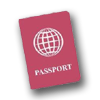The Grand Hotel, Pristina; bed-bugs from District 9 and a back lot too scary for skateboarders...

The Grand Hotel Pristina and one of its dingy corridors. Photos My Bathroom Wall
Chris Patten said that the Grand Hotel in Pristina was the worst hotel in the world — “unbelievably grim”, he called it. The Lonely Planet includes it “so that you don’t get lured into staying”, and the In Your Pocket guide wound up its review with: “We suggest demolition.” Can any hotel really be that bad?
To find out I booked a £60 room and flew to the Kosovan capital to find out. The 1999 war and the current limbo status of Kosovo — a country barely a third of the world recognises — has left Pristina brutalised. At the centre of the concrete cityscape is the 13-storey Grand Hotel, a 369-room monstrosity built in 1978 to accommodate Tito’s communist cadres.

My room in the Grand Hotel Pristina. Photos My Bathroom Wall
I’d read that Kosovo had lovely valleys, the old town of Prizren and the Gracanica monastery, but I couldn’t see these from my fifth-floor window. I parted the fusty red drapes and torn net curtain to peer out, and saw what must once have been a shopping mall attached to the hotel. It was now derelict — too scary even for the skateboarders. Where the scree of debris ended, dozens of snow-white UN vehicles were corralled into a car park by barbed wire.
I couldn’t actually see any bugs, but I was certainly kept awake by them, the welts on my back multiplying through the night A brief inspection of the room revealed a threadbare green carpet and rotting bathtub — with no plug and barely tepid water. When the time came, I climbed into bed nervously, a TripAdvisor comment echoing through my mind. And it wasn’t added by Mollycoddled of Michigan, either, but by a local, who said: “Two of us had to get medical treatment because of bugs in the mattresses.” By dawn, I felt like I’d done a few rounds with the aliens from District 9.

A room with a view of urban blight and UN vehicles. Photos My Bathroom Wall
Then the drilling started. I gave up on sleep and went for an early breakfast. There were three chandeliers (one lit), 100 empty tables and two grumpy staff members.
One, a lady sitting at a central table as if adjudicating an exam, stabbed her pen into a ledger to get my attention. I gave my room number and a flourish of her heavily braceleted wrist told me to move on.
The buffet was boiled eggs, cheese slices, tomatoes and coffee that tasted of mouldy Mars bar. The two staff both watched me fumble with the coffee machine, but didn’t offer help. I soon decided to leave, inadvertently scraping my chair leg when I got up.
The ledger lady shot me an Exocet stare, and her male colleague marched to the door. He got there just ahead of me and, with his arms tightly folded and feet planted bouncerly apart, barred my way. I froze. He was genuinely scary. What could I have done wrong?
He looked down at me sternly, like an interrupted genie. “Haff nice day,” he said, then he moved sideways, just enough to let me pass. He’d been on a customer service course, apparently. I don’t think he’d quite got the point.
***
So, yes, the Grand was indeed grim — so much so that (bedbugs aside) it was almost entertaining. The strong rumour was that if you wanted to sample its authentically crumbling post-communist glory, you’d better move fast, as it seemed that an international chain was about to snap it up and make it an efficient, yet no doubt bland, place to stay. But a cursory glance at any recent social media comments reveals that the Grand Hotel is still just as poor as it ever was.
 |
Fitting Pristina into a holiday: for the curious traveller, the capital of Europe's newest country makes for a fun city break, but it's not such an easy place on the eye, and you may find the almost total lack of tourists a bit eerie. Kosovo itself is a small country, and so the Rugova Valley, the handsome Ottoman era cultural capital of Prizren, the old town of Gjakova or the Four Paws Bear Sanctuary. |
 |
Getting there: Pristina Airport last year handled 1.7 million passengers and is 15 kilometres southwest of the city. Useful connections include flights to London with Wizz and Germania, Ljubljana with Adria Airways, Vienna with Austrian Airlines, Basel and Geneva with EasyJet, and Turkish Airlines to Istanbul. Trains are few and slow, but busses run to Skopje and Tirana. |
 |
When to visit: Kosovo is a landlocked and relatively mountainous country. The best time to visit is June_September, when days can be warm to hot and there's the least rain and most sunshine. In winter temperatures can fall to -30°C. |
 |
More info: the country is astonishingly youthful - with 70% of the population aged under 35. Plus it is safe and cheap, with simple local meals available for about €2 and a bottle of beer for €1. The tourism industry is underdeveloped, so there are few online resources. UK based tour operators include Regent Holidays Regent Holidays and Responsible Travel. Local outfit Be in Kosovo can help with tours and guides etc. |
 |
Visa and safety: always check your government's travel advice before booking, and ensure that your travel insurance is valid in this part of the country. See the British Foreign and Commonwealth Office travel advice. |
